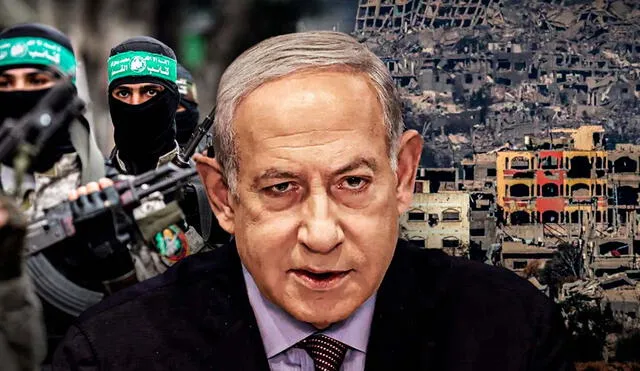Israel launches intensified bombings in Gaza, resulting in nearly 20 Palestinian fatalities in 24 hours
Tensions in the Middle East have reached new heights as Israeli airstrikes intensify over the Gaza Strip, resulting in nearly 20 Palestinian deaths within the last 24 hours.

Tensions in the Middle East have reached new levels of violence in light of recent air strikes ordered by the Israeli government on the Gaza Strip. According to official sources and local media, nearly 20 Palestinians have been reported dead from the bombings that have taken place in the past 24 hours, while Prime Minister Benjamin Netanyahu reiterated he is committed to “dismantling Hamas' terrorist infrastructure.”
This is just an escalation of an already unbearable humanitarian crisis that has drawn all kinds of international condemnation. Organizations such as Médecins sans frontières and Amnesty International have expressed concern over the number of civilian deaths increasing, and the barriers to providing medical assistance increasingly growing in Gaza. There have been numerous reports of calls for a ceasefire, with little to no progress being made diplomatically.
What is driving the current Israeli offensive on Gaza?
The most recent escalation of violence was initiated by Palestinian armed groups, which launched rockets onto Israeli territory. Military sources claimed this action served as the impetus for a “strong and necessary” response.
Israeli authorities have insisted that the offensive is aimed at “neutralizing Hamas' strategic positions” and those of other insurgent groups, and Prime Minister Netanyahu told the Knesset that “we will not allow our population to live under terror threats.”
International experts indicate that this increase in escalation responds to the political crisis in Israel, as the government, under criticism for its management of the crisis and internal division in the cabinet, could prompt unity amongst the more conservative sector of the Israeli public by demonstrating military “strength.” “It’s a strategy to ensure that he is identified as a leader, especially in a politically unsafe moment,” analyst Ruth Ben-Ari told Al Jazeera.
What is the humanitarian impact in the Gaza Strip?
A “catastrophic” situation is what United Nations spokesperson for Humanitarian Affairs Jens Laerke called the situation in Gaza.
The hospital infrastructure has been battered, chronic blackouts are contributing to the already terrible living conditions of Palestinian civilians, which were a little worse than abysmal before the bombings began. Local news reports and residents are talking about totally leveled neighborhoods.
Currently, reports from the Palestinian Red Crescent confirm that nearly 20 Palestinians, of which include women and children, confirmed to be casualties in the latest day of bombings. “The number of dead is going up every hour,” stated a spokesperson from the humanitarian agency.
The international community, with help from the UN and the European Union, has urged the Israeli government to follow international humanitarian law and grant access for humanitarian to Gaza.
Are there real possibilities for a ceasefire?
Mediation talks with Egypt, Qatar, and United Nations representatives so far have not resulted in any meaningful progress.
Hamas has purportedly indicated a readiness to enter into a ceasefire agreement, while Israel maintains that “any ceasefire must come with ironclad guarantees against future attacks,” according to a Defense Ministry official cited by Reuters.
Benjamin Netanyahu, meanwhile, stated, “We will not stop until we reach our strategic goals.” This stance makes it even less likely there will be an immediate agreement, and adds to the arguing for how long the situation will continue to make life miserable for the people living in the Gaza Strip.
Analysts also note an extended offensive by Israel risks further destabilizing the region and creating new cycles of violence.












